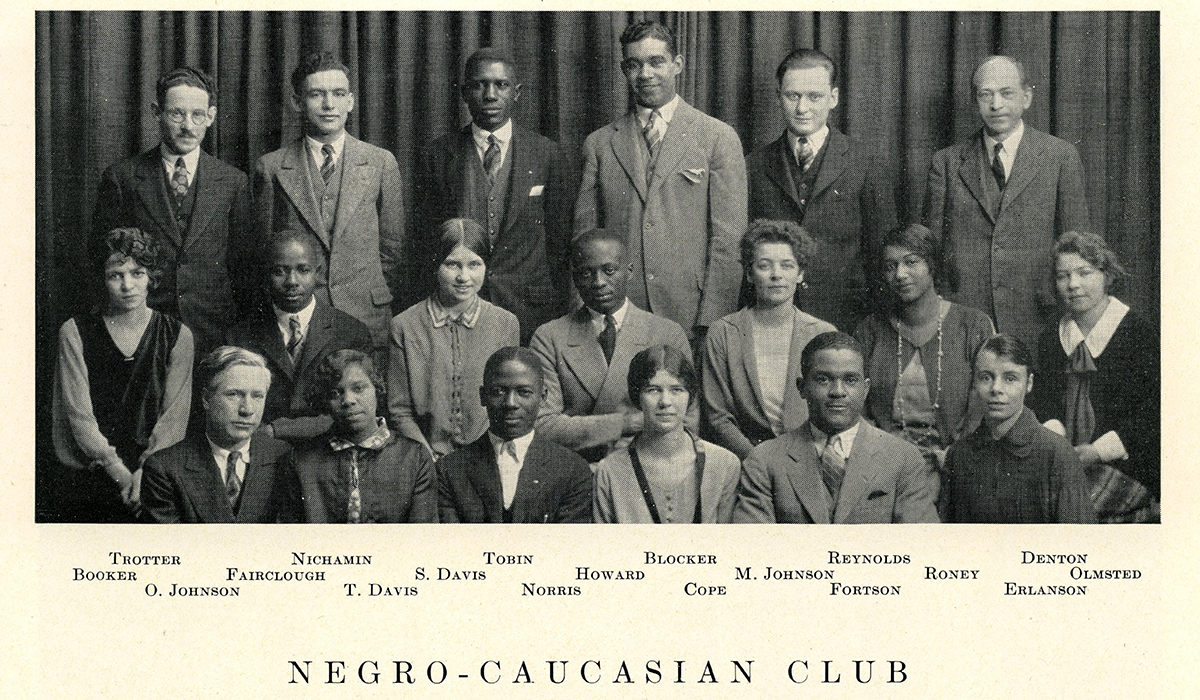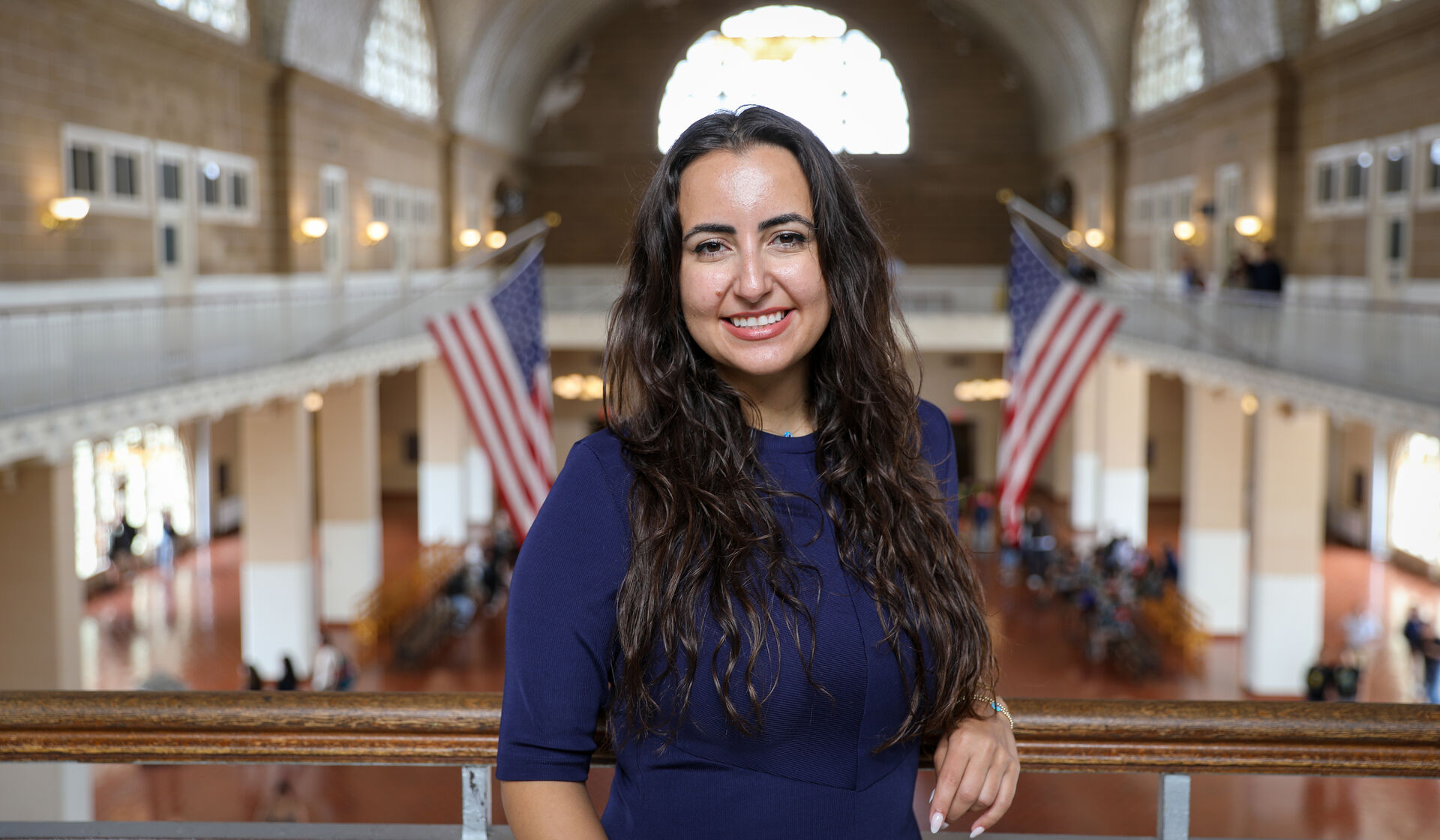There wasn’t a major announcement, just a news brief reporting the first meeting in the Wednesday, Dec. 9, 1925, edition of the Michigan Daily—two days after the event. “To benefit the negro students on the campus,” it began, “a new club was organized in Lane hall Monday night under the name of the Negro-Caucasian club, its members including representatives of both races.”
A student representative told the newspaper that the purpose of the club was not only to promote social cooperation on the campus, “but to be of every help possible to the negro students of the University.”
The genesis of the Negro-Caucasian Club occurred earlier in the fall of 1925, when Lenoir Bertrice Smith, a Black U-M student, and her white friend Edith Kaplan were refused service at a near-campus restaurant. The two went to Oakley Johnson, Smith’s rhetoric instructor, for advice on what to do. Though the University couldn’t do anything directly, Smith, Kaplan, and Johnson gathered like-minded friends and fellow students to form the club.
Though the Negro-Caucasian Club existed only until the onset of the Great Depression in 1930, it exemplified the U-M student drive for social justice. The group worked to break down social barriers and unfamiliarity on campus, counter stereotyping of the roles of Black people in American society, and bring in luminaries of the time to campus. Speakers and guests the club hosted included Black intellectuals W.E.B. DuBois and Alain LeRoy Locke, activist A. Philip Randolph, and future U.S. Supreme Court Justice Frank Murphy.
For more on the history of the Negro-Caucasian Club, visit the U-M Heritage Project.
Gregory Lucas-Myers, ’10, is senior assistant editor of Michigan Alum.





